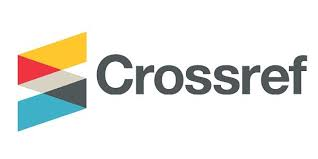THE EFFECT OF DISTANCE LEARNING THROUGH LEARNER CENTER MICROTEACHING MODEL ON PCK, EXPERIENCE, PERFORMANCE, AND PROFESSIONAL AWARENESS
DOI:
https://doi.org/10.37478/optika.v4i2.706Abstract
This study aims to see the effect of distance learning through LCMT, experience, performance, and professional awareness of 6th semester students of the Physics Education study program. This study used an experimental method with a posttest design with 33 respondents. Data collection was carried out using a questionnaire technique with 33 items of instruments. Data for each instrument item using a Likert scale with the accumulated number of each instrument item. The results showed that the effect of distance learning through LCMT had a very high effect on PCK (score 149), experience (score 142), performance (score 146), and on professional awareness (score 144).
Downloads
Keywords:
learning center micro learning, pedagogical content knowledge, professional awarenessReferences
Albin, S., & Shihomeka, S. P. (2017). Learning from Students’ Experiences of Microteaching for Numeracy Education and Learning Support: A Case Study at University of Namibia, Southern Campus. Technology, and Sciences (ASRJETS) American Scientific Research Journal for Engineering, 36(1), 306–318
Arsal, Z. (2015). The effects of microteaching on the critical thinking dispositions of pre-service teachers. Australian Journal of Teacher Education, 40(3), 140–153. https://doi.org/10.14221/ajte.2014v40n3.9
Azrai, E. P., Rini, D. S., & Suryanda, A. (2020). Micro-teaching in the Digital Industrial Era 4.0: Necessary or not? Universal Journal of Educational Research, 8(4A), 23–30. https://doi.org/10.13189/ujer.2020.081804
Bahjat, A. (2016). Effectiveness of using Microteaching and Thinking style to Develop Teaching Skills in Arab Open University - Jordan Branch. International Journal of Learning, Teaching and Educational Research, 15(3), 118–133.
Bakir, S. (2014). The effect of microteaching on the teaching skills of preservice science teachers. Journal of Baltic Science Education, 13(6), 789–801.
Bilen, K. (2015). Effect of Micro Teaching Technique on Teacher Candidates’ Beliefs regarding Mathematics Teaching. Procedia - Social and Behavioral Sciences, 174, 609–616. https://doi.org/10.1016/j.sbspro.2015.01.590
Buselic, M. (2012). Distance Learning – concepts and contributions. Oeconomica Jadertina, 1, 23–34.
Christensen, R., Knezek, G., Wood, T. T., & Gibson, D. (2011). simSchool: an online dynamic simulator for enhancing teacher preparation. International Journal of Learning Technology, 6(2), 201. https://doi.org/10.1504/ijlt.2011.042649
Darwish, S. Al, & Sadeqi, A. (2016). Microteaching impact on Student Teacher’s Performance: A Case Study from Kuwait. Journal of Education and Training Studies, 4(8), 126–134. https://doi.org/10.11114/jets.v4i8.1677
Dayanindhi, V. K., & Hegde, S. P. (2018). Effectiveness of microteaching as a method of developing teaching competence among in-service medical teachers. Journal of Advances in Medical Education & Professionalism, 6(4), 155–161. http://www.ncbi.nlm.nih.gov/pubmed/30349826%0Ahttp://www.pubmedcentral.nih.gov/articlerender.fcgi?artid=PMC6191834
Herrera, R. F., Vielma, J. C., & La Rivera, F. M. (2018). Impact of microteaching on engineering students’ communication skills. International Journal of Engineering Education, 34(6), 1768–1775
Kartal, T., Ozturk, N., & Ekici, G. (2012). Developing Pedagogical Content Knowledge in Preservice Science Teachers through Microteaching Lesson Study. Procedia - Social and Behavioral Sciences, 46, 2753–2758. https://doi.org/10.1016/j.sbspro.2012.05.560
Kilic, A. (2010). Learner-Centered Micro Teaching in Teacher Education. International Journal of Instruction, 3(1), 77–100.
Kolb, A. Y., & Kolb, D. A. (2009). Experiential learning theory: A dynamic, holistic approach to management learning, education and development. The SAGE Handbook of Management Learning, Education and Development, May 2015, 42–68. https://doi.org/10.4135/9780857021038.n3
Lont, D. (1999). Using an intranet to facilitate student-centered learning. Journal of Accounting Education, 17(2), 293–320. https://doi.org/10.1016/s0748-5751(99)00011-1
Mahmud, I. (2013). Micro Teaching to Improve Teaching Method: An Analysis on Students’ Perspectives. IOSR Journal of Research & Method in Education (IOSRJRME), 1(4), 69–76. https://doi.org/10.9790/7388-0146976
Onwuagboke, B. B. C., Osuala, R. C., & Nzeako, R. C. (2017). The Impact of Microteaching in Developing Teaching Skills among Pre-Service Teachers in Alvan Ikoku College of Education Owerri, Nigeria. African Research Review, 11(2), 237. https://doi.org/10.4314/afrrev.v11i2.18
Rahimi, A. (2019). Investigating the Contributing Factors Affecting High School Students’ Self-confidence and the Solutions for Enhancement: A Case Study of Arabu Qala High School, Kandahar, Afghanistan. American International Journal of Social Science Research, 4(1), 35–45. https://doi.org/10.46281/aijssr.v4i1.316
Reddy, K. (2019). Teaching How to Teach: Microteaching (A Way to Build up Teaching Skills). Journal of Gandaki Medical College-Nepal, 12(1), 65–71. https://doi.org/10.3126/jgmcn.v12i1.22621
Remesh, A. (2013). Microteaching, an efficient technique for learning effective teaching. Journal of Research in Medical Sciences, 18(2), 158–163.
Ünlü, M. (2018). Effect of micro-teaching practices with concrete models on pre-service mathematics teachers’ self-efficacy beliefs about using concrete models. Universal Journal of Educational Research, 6(1), 68–82. https://doi.org/10.13189/ujer.2018
Downloads
Published
How to Cite
Issue
Section
License
Jurnal Lesensi











